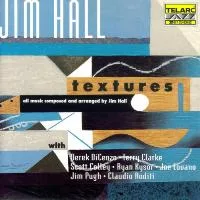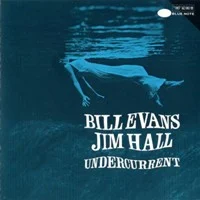Year: 2012
Time: 71:16
File: MP3 @ 320K/s
Size: 166,2 MB
Art: Front
(2:03) 1. Five O'Clock Blues
(3:48) 2. Lament
(2:49) 3. Did You Ever Hear the Blues?
(2:47) 4. Tired As I Can Be
(4:19) 5. Good Old Guy
(2:55) 6. Mr. Blues Child
(5:05) 7. Red Sun Blues
(2:25) 8. Mojo Blues
(3:09) 9. Cool Saturday Night
(3:05) 10. Got to Live
(3:41) 11. Wee Small Hours
(4:51) 12. About My Baby
(3:18) 13. I Know
(2:23) 14. Lament to Love
(2:42) 15. The Monterey Story
(4:20) 16. I Never Had a Woman
(3:43) 17. Wanna See My Baby
(2:52) 18. When You're not Around
(3:13) 19. It's a Hard Life
(3:40) 20. Sweet Slumber
(3:59) 21. If You Don't Love Me
Clarence H. Miller, known to his friends as Big, was one of the most impressive new blues singers on the late Fifties scene. With a childhood background of church singing and piano and trombone studies, he became a professional musician in 1946 after Army service, when he led a band touring with a repertoire largely based on Louis Jordan jump numbers, before switching to bass and joining Jay McShanns earthy, Kansas City based outfit. Influenced by Walter Brown and Joe Turner, he started singing blues with the band and moved to Chicago and Cincinatti, forming a group with trombonist Al Grey which went to Texas. A year touring the small Texas towns honed his gift for blues singing and a move to New York led to his big breakthrough.
He made a debut LP, Did you ever hear the blues?, for United Artists, went with Nat Pierces band into Birdland and then, through singer Jon Hendricks, was invited to the 1960 Monterey Jazz Festival. That led to Hollywood. Stints at Shelly Mannes celebrated club and an album, Revelation and the Blues, with Ben Webster confirmed his status as a front-rank blues singer with a unique style which was influenced by bop.
Tracks #1-11 from the 12" LP "Did You Ever Hear The Blues" (United Artists UAS 6047)
Tracks #12-21 from the 12" LP
"Revelations And The Blues" (Columbia CS 8411)
Personnel on "Did You Ever Hear The Blues": "Big" Miller (vcl), with orchestra arranged and
conducted by Budd Johnson. Associate arranger: Jimmy Jones
Tracks #1,5,7 & 9: Pat Brooks (tp), Jimmy Cleveland (tb), Phil Woods (as), Zoot Sims (ts), Al Cohn (bs), Jimmy Jones (p), Chuck Wayne, Turk Van Lake (g), Chet Amsterdam (b) and Elvin Jones (d).
Tracks #2-4,8 & 10: Pat Brooks (tp), Jimmy Cleveland (tb), Phil Woods (as), Zoot Sims (ts), Sol Schlinger (bs), Jimmy Jones (p), Everett Barksdale, Kenny Burrell (g), Chet Amsterdam (b) and Jo Jones (d).
Tracks #6 & 11: Pat Brooks (tp), Vic Dickenson (tb), Phil Woods (as), Zoot Sims (ts), Jimmy Jones (p), Billy Bauer, Barry Galbraith (g), Chet Amsterdam (b) and Gus Johnson (d).
Recorded in New York City, May, 1959.
Personnel on "Revelations And The Blues"
"Big" Miller (vcl), accompanied by
Tracks #16,19,20 & 21: Ben Webster (ts), Gildo Mahones (p), Bobby Gibbons (g), Ike Isaacs (b) and Jimmy Wormworth (d).
Tracks #12-15,17 & 18: Plas Johnson (ts), Ernie Freeman (p), Jim Hall (g), Red Mitchell (b) and Frank Butler (d).
Recorded in Los Angeles, on October 18 (#16,19,20 & 21), and November 8 (#12-15,17 & 18), 1960.




















